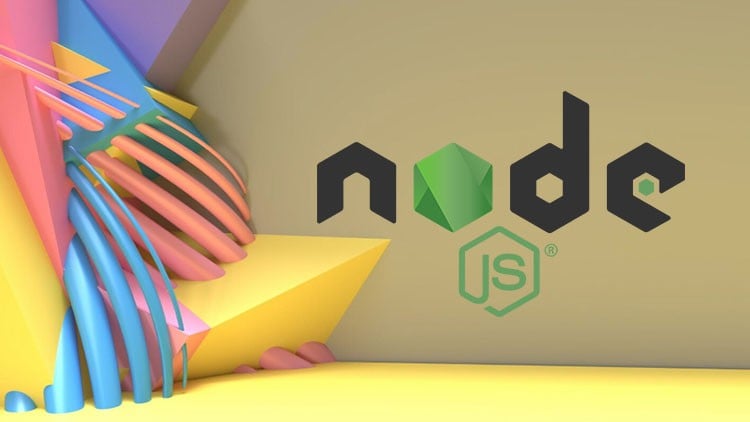
Master backend development and integrate it seamlessly with modern front-end frameworks.
⏱️ Length: 3.2 total hours
⭐ 2.42/5 rating
👥 2,096 students
🔄 August 2025 update
Add-On Information:
Note➛ Make sure your 𝐔𝐝𝐞𝐦𝐲 cart has only this course you're going to enroll it now, Remove all other courses from the 𝐔𝐝𝐞𝐦𝐲 cart before Enrolling!
- Course Overview
- Explore Node.js’s pivotal role in crafting high-performance, scalable backend solutions for modern web applications.
- Understand Node.js’s non-blocking, event-driven architecture, ideal for real-time applications and microservices.
- Embark on a foundational journey into backend development for aspiring full-stack engineers, bridging server-side and client-side experiences.
- Delve into practical Node.js applications beyond basic scripting, including complex system design and efficient data handling.
- Appreciate the strategic advantages of using Node.js for robust API development, enabling seamless data communication.
- Prepare to confidently navigate essential backend tools and methodologies for building production-ready applications.
- Requirements / Prerequisites
- A foundational understanding of JavaScript syntax (variables, functions, control flow) is essential.
- Familiarity with the command-line interface (CLI) and basic commands will aid development environment setup.
- Prior exposure to fundamental web concepts like HTTP requests and client-server architecture is beneficial.
- No prior Node.js or server-side programming experience is required, making this course accessible to beginners.
- A stable internet connection and a modern computer for running development tools are necessary.
- Willingness to engage actively in hands-on coding and problem-solving will accelerate skill acquisition.
- Skills Covered / Tools Used
- Master asynchronous programming patterns like Promises and async/await for cleaner, manageable code flow.
- Proficiently utilize popular Node.js frameworks such as Express.js to rapidly build robust RESTful APIs and web applications.
- Implement advanced API design principles, encompassing versioning, request validation, and effective error handling.
- Explore various database interaction techniques: ODMs for NoSQL (e.g., Mongoose) and ORMs for SQL (e.g., Sequelize).
- Develop secure backend applications incorporating best practices for authentication (e.g., JWT), authorization, CORS, and vulnerability protection.
- Learn deployment strategies for Node.js applications to cloud platforms like Heroku, Vercel, or AWS, ensuring global accessibility.
- Apply effective debugging and performance profiling techniques for Node.js applications, optimizing response times.
- Seamlessly integrate Node.js backends with modern front-end frameworks (React, Angular, Vue.js) for full-stack data flow.
- Implement comprehensive testing methodologies, including unit testing for components and integration testing for API endpoints.
- Utilize version control systems like Git and GitHub for collaborative development and efficient code management.
- Understand core containerization concepts with Docker for consistent development, testing, and production environments.
- Explore real-time communication patterns using WebSockets for instant data exchange, like chat features.
- Apply best practices for structuring large Node.js projects, promoting modularity, maintainability, and scalability.
- Benefits / Outcomes
- Acquire the skill set to confidently build, deploy, and scale production-grade Node.js backend applications.
- Transition from basic JavaScript to a capable full-stack developer, proficiently bridging client-side and server-side development.
- Gain practical experience designing and implementing efficient, secure, and performant RESTful APIs.
- Develop a deep understanding of asynchronous JavaScript, empowering you to write non-blocking, responsive code.
- Position yourself favorably for exciting career opportunities in backend, full-stack, or specialized API development roles.
- Cultivate strong problem-solving abilities specific to server-side challenges, including data persistence and scalability.
- Master integration patterns to connect your Node.js backend with any modern front-end technology.
- Develop an analytical approach to selecting appropriate tools and libraries within the Node.js ecosystem.
- Become adept at debugging and optimizing Node.js applications, enhancing their performance.
- PROS
- Provides a structured and comprehensive pathway for beginners to grasp complex Node.js backend concepts.
- Focuses heavily on practical application and full-stack integration, empowering learners to build functional web solutions.
- The “August 2025 update” ensures fresh, relevant content, aligning with current industry standards and best practices.
- Emphasizes the crucial link between backend services and modern front-end frameworks, preparing developers for real-world projects.
- Offers a solid foundation for expanding into specialized areas of backend engineering or real-time systems.
- CONS
- Given the ‘Master’ title and broad scope, the relatively short course length (3.2 hours) may necessitate significant independent study for true mastery.
Learning Tracks: English,Development,Web Development
Found It Free? Share It Fast!